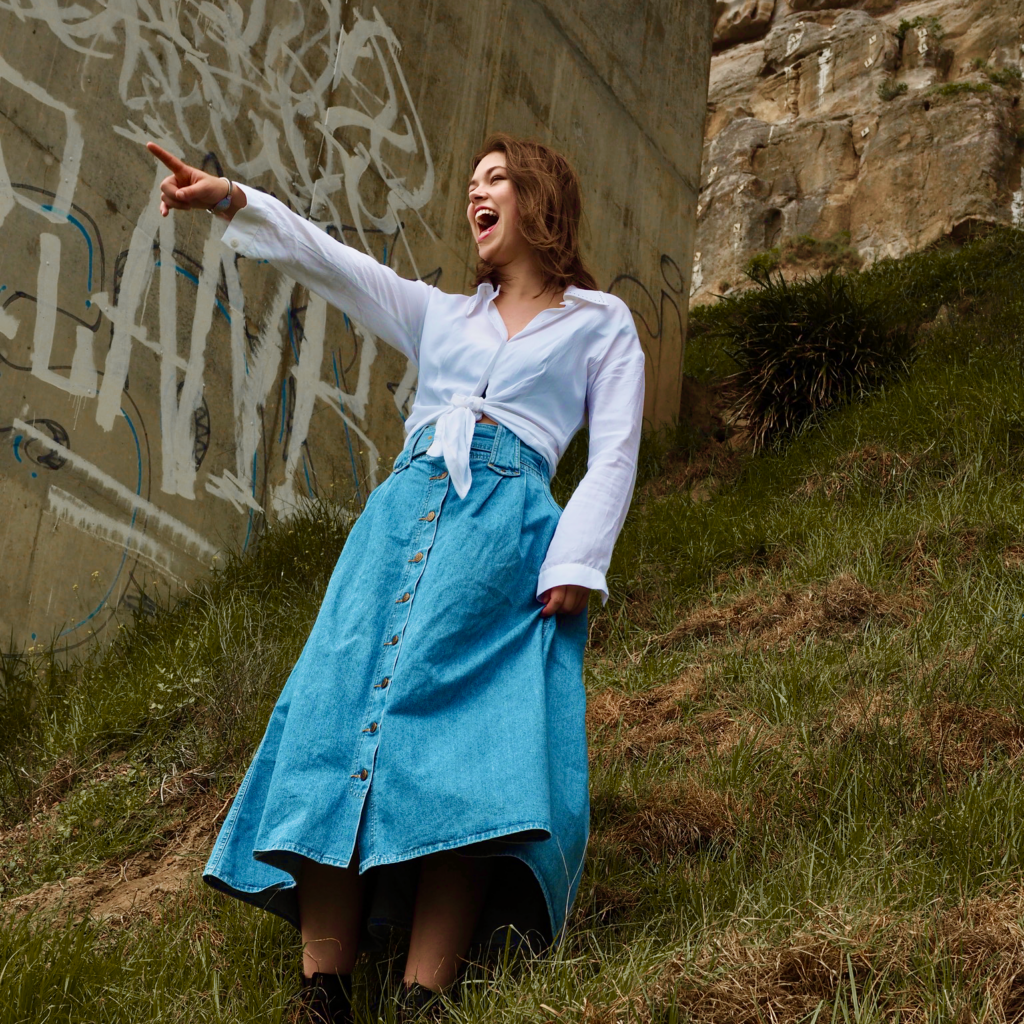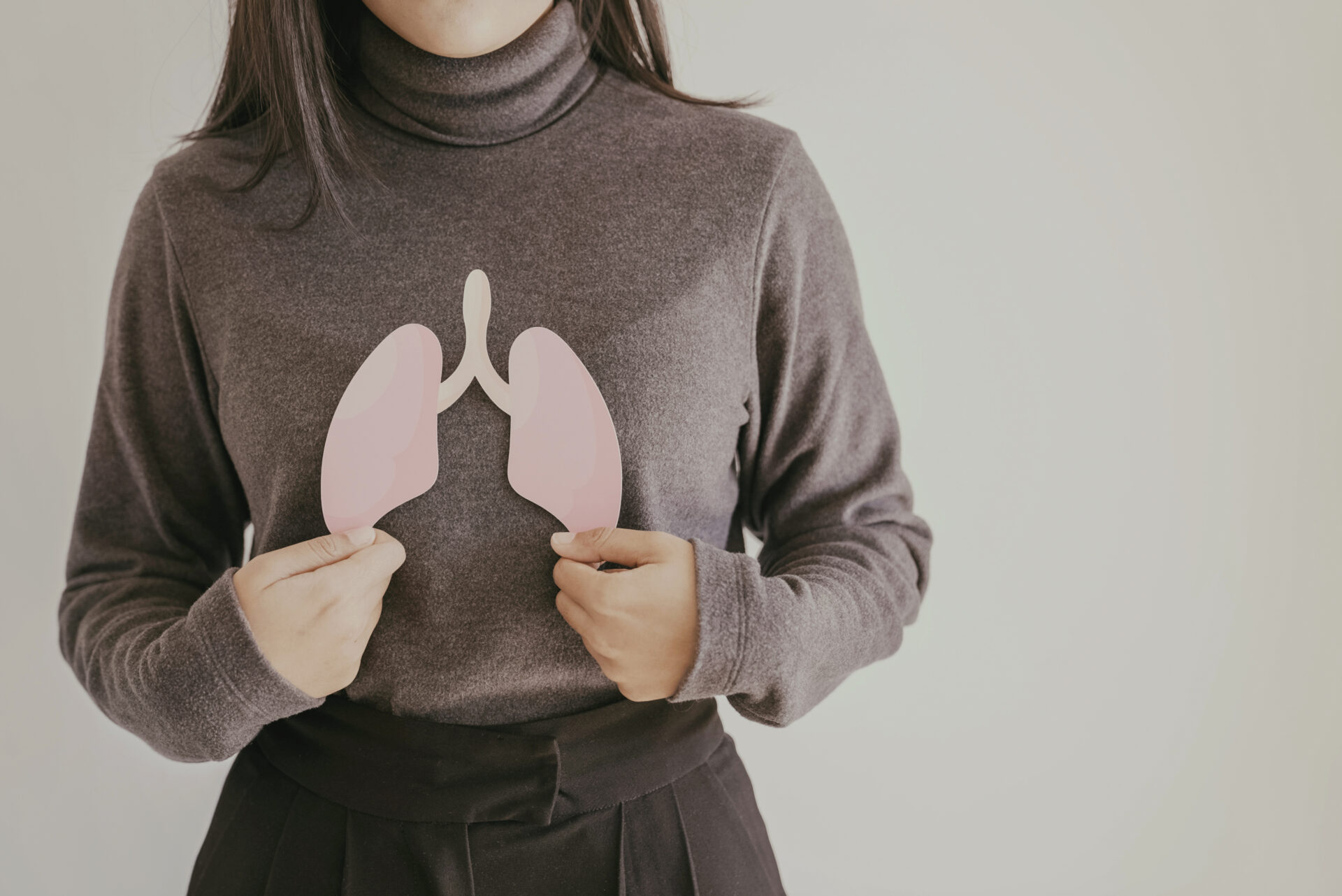Living with PAH, a rare, progressive disease, is different for everyone. If you are like most newly diagnosed Australians, you may feel overwhelmed, and experience feelings of uncertainty. Lung Foundation Australia caught up with Miranda Green, 19, who shares her experience living with PAH for over a decade. Miranda discusses how she maintains a normal life, her positive outlook, and how she is living with PAH as a young and aspiring musician.

Miranda, how old were you when you were first diagnosed?
I was nine when I was first diagnosed, but my parents were worried about [the possibility of] me having PAH since I was much younger, as my breathlessness was getting worse. As a little kid I was born with two holes in my heart, and they were never fixed. I always struggled with being puffed, particularly when running around in the playground. I always fell a bit behind.
How was it for you and your family receiving your PAH diagnosis?
Getting a diagnosis was good, once it came, but it took too long to come and too much effort to fight for. Once I was diagnosed my disease tipped past the reversible stage which was upsetting.
What were your first symptoms and how did it affect you?
Being a little kid, the biggest hindrance to me was the shortness of breath. Of course, others noticed the chubby fingers and legs. I certainly didn’t know the difference or that they were PAH symptoms. Breathlessness, chest pain and dizziness are the most impactful aspects of PAH experienced.
You don’t often think of someone with a lung condition as being a singer. What can you tell us about how treatment has helped you maintain your dream?
Treatment has kept me alive. There are times when my health relapses and singing becomes more difficult, when I get sick more often and it interferes, so good solid treatment plan really enables me to consistently strive for my creative visions.
Is there anything you’ve had to consider that other women your age may not have had to living with PAH?
PAH is a very serious and unstable disease which presents an ominous burden that is ever-present in the back of my mind. It really makes having a family or kids seem impossible. But I am someone who goes with the flow because having fixed dreams will inevitably lead to disappointment.
Life is too interesting and fantastic to be constantly frustrated.
Tell us more about working in the music industry while having a lung disease? How has PAH affected your career?
I have a paralysed vocal cord which is likely caused by my PAH, and that was a definite blow to my confidence when I first started singing lessons. I found speaking difficult for a while and sometimes still do. And there are aspects of projection that I feel really inadequate in; even in breathing control. Many people encouraged me, valuing the unique husky quality of my voice.
There are challenges performing on stage and travelling heaps, it is very physically demanding. Something I don’t know if I can do – but I believe creativity is realised within constraint. I would be no better a musician without PAH, than with it. People can judge and assume my capabilities all they want, but as far as I’m concerned, I use what I’ve got to the best of my ability, and I do pretty well.
Once you were diagnosed, what are some ‘positive’ things that came from it? How has living with PAH impacted your day-to-day life?
I have learnt so much about anatomy and the different aspects of health. I just happen to have a constant reminder and I really appreciate that, because as a result I am being my true self, chasing my dreams, caring about the planet and not caring (too much) about what people think.
What advice can you give to the carers or loved ones of someone with PH/ PAH?
When I was younger my parents were those fighting for me, and now they’re the ones who take me to appointments, keep my medical records organised. Carers suffer as much as the individuals with PH, maybe more.
Look after yourselves and a big thank you from me, please don’t worry too much, focus on enjoying your time with whoever you’re caring for.
Do you have any advice to people who are newly diagnosed with PAH?
For the newly diagnosed, my advice would be: ‘please don’t be scared, upset, because this challenge was within your body before you were diagnosed. You have been living with this for a while now and now you have the tools to manage it. That’s a first step to recovery and a more enjoyable life for you.’
Lung Foundation Australia offers free resources for people living with PAH – how important are these resources for people?
These resources are crucial in making patients and carers feel supported through a challenging disease. The mental game is half the struggle, so having accessible tools to fight for your health solves half the problem.
Being diagnosed with a rare condition like PAH can be overwhelming and isolating. Lung Foundation Australia’s evidence-based resources will help you better understand your condition and the important steps you can take to improve your outcomes and wellbeing.
Download a free resource pack or browse our resources via the link below.


